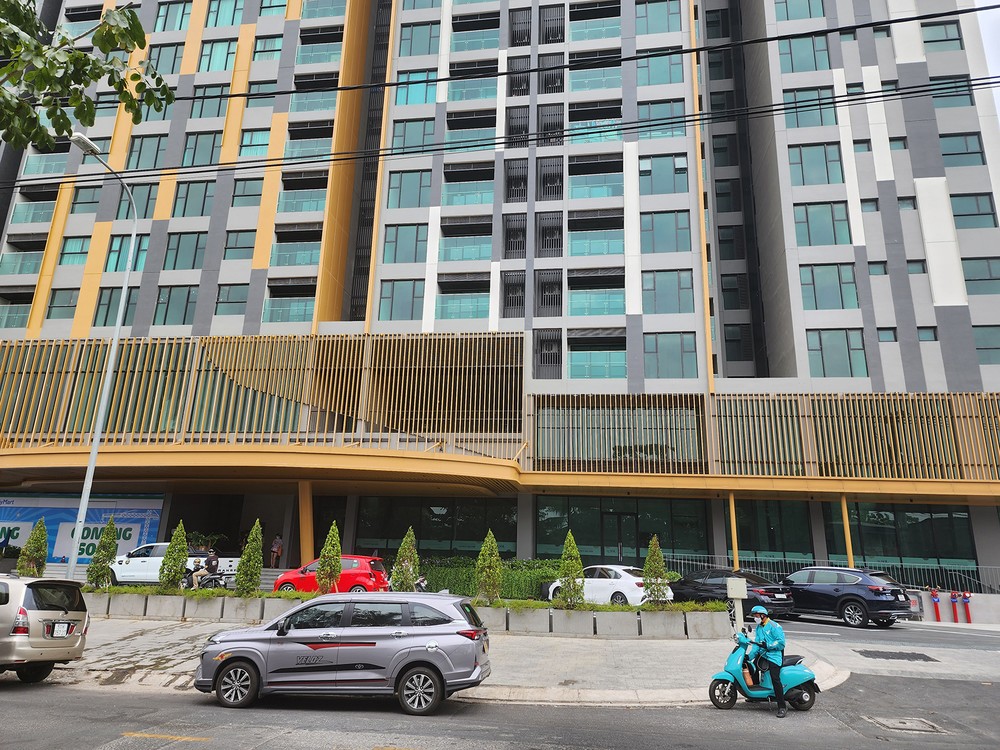
The city makes efforts to remove obstacles for real estate firms
In recent days when the Lunar New Year is approaching, residents at the De La Sol apartment project in District 4 invested by CapitalLand Development Company (CDT), are eager to buy furniture for their new house in time for the celebration of the traditional Tet holiday (the Lunar New Year).
This 900-apartment building project has been completed after 4 years of construction and buyers moved into their apartments at the end of 2023. De La Sol is one of seven projects that the Ho Chi Minh City People's Committee prioritized while removing difficulties from the beginning of 2023. This project previously encountered problems because it was related to the equitization of enterprises. The hiccup along the way is now resolved.
According to the Ho Chi Minh City People's Committee, by the end of 2023, out of a total of 189 recommendations in 148 projects facing problems, the city directed departments and agencies to handle nearly 60 proposals from 44 projects. After May 2023, the government’s working group has worked to remove difficulties and obstacles in investment projects in Ho Chi Minh City.
In particular, the city agreed to the policy of selling 50 percent of apartments at apartment buildings such as Gotec Land's Shizen Home project in District 7, the Celadon City project of investor Gamuda Land in Tan Phu District and the Metropole project of investor Quoc Loc Phat in Thu Duc City.
In addition, the city resolved problems in adjusting investment policies at the Metro Star apartment project of investor CT Group in Thu Duc City. The Prime Minister's Working Group and Ho Chi Minh City's Working Group have also helped to partly remove obstacles in the projects of two giants Novaland and Hung Thinh.
However, according to representatives of real estate businesses, there are still some important difficulties that make solving problems less effective including the time competent authorities spend on giving opinions or approving legal procedures that are still not synchronized with the actual development process, causing the stages to be delayed.
In addition, there is a lack of uniformity, overlap, inconsistency and impracticality between legal and sub-law documents.
Real estate businesses are still waiting for removal of legal hiccups
According to the Ho Chi Minh City Real Estate Association, the real estate market currently still has many difficulties and obstacles including the procedural problem of ‘investment policy approval concurrent with investor approval’ for social housing projects and commercial housing projects where the investor already has land use rights in accordance with planning provisions in Decree 31/2021/ND-CP on appraising the compatibility of investment projects with planning.
Additionally, the regulations on ‘residential land’ or ‘residential land and other land’ are also another impediment to property projects.
Under the regulation, investors of commercial housing projects are required to have the right to use residential land; and have the right to use residential land and land other than residential land that meets the conditions for changing land use purposes to implement investment projects.
Currently, hundreds of commercial housing projects in the country, that are not completely built on residential land, built on non-residential land or land other than residential land, are not recognized as investors of commercial housing projects, even though these enterprises have received land use rights for agricultural land or non-agricultural and non-residential land as permitted by the 2013 Land Law.
The third problem relates to specific land valuation, land price appraisal, and land price determination to calculate land use fees, and land rent for real estate projects, commercial housing. Next, real estate firms are facing problems because they are only allowed to transfer projects or parts of commercial housing projects when they have had a certificate of land use rights for all or part of the transferred project which has fulfilled its financial obligations. This regulation does not ensure the ‘business autonomy’ of enterprises.
The next problem is that competent state agencies are slow to promulgate regulations to handle public land areas located interspersed in commercial housing projects. Although the Decree 148 took effect in February 2021, some provinces and cities have not issued regulations guiding implementation, so many commercial housing projects are delayed.
According to some real estate business leaders in Ho Chi Minh City, legal problems are the biggest problems in recent times, accounting for 70 percent of difficulties of real estate projects due to some inconsistent and inconsistent legal regulations which have made it difficult for many businesses to implement projects on schedule. This caused the project to prolong construction time, leading to increased costs; therefore, customers can not move into their houses as per contracts between them and real estate firms.
























